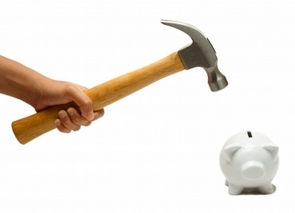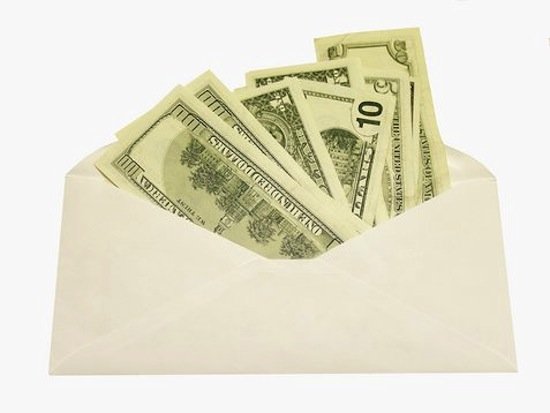 SHTF events come in many different flavors. While most of us think of things like natural disasters, economic collapse and pandemics, many occurrences are much more mundane. They are those small personal disasters that can hit any of us, at any time.
SHTF events come in many different flavors. While most of us think of things like natural disasters, economic collapse and pandemics, many occurrences are much more mundane. They are those small personal disasters that can hit any of us, at any time.
Maybe your refrigerator stops making that weird humming noise and gives up the ghost altogether.
Perhaps your car begins leaking colorful fluids in the driveway.
A family emergency could call you away at the last minute, requiring a lengthy drive and hotel stay.
Personally, a medical emergency has occurred with my daughter, resulting in a long drive to see a specialist, some unexpected meals out, and the purchase of a parking pass at the city hospital. It’s a cringe-worthy expense of several hundred dollars, not to mention the possibility of other costs related to the care of the injury itself. My friend Y (*waves at Y*) very graciously offered a bit of help with the fuel expenses.
I said, “Oh, that’s okay. I’ll just take it from my emergency fund.”
Y replied, “Have you ever written on the topic of the emergency fund?”
So, yeah – the emergency fund. What a relief to have one! Having that money, sitting there, takes what would been an enormous worry out of the equations so that I can spend all my mental energy helping my child. Whatever the personal SHTF event may be, having some money set aside to deal with it is every bit as much of a prep as a one year supply of beans and rice.
How much do you need?
One of the first things that money gurus recommend to people trying to get their finances on track is that they set aside an emergency fund. As someone trying to be prepared for any eventuality, it only makes sense to have something put away for a rainy day.
Everyone’s financial situation is different, so instead of a cookie cutter suggestion about how much money to keep on hand, consider your expenses. If you lost your job suddenly, and for some reason, never got another pay check, how much money would you need to survive for 1 month? 3 months? 1 year? While putting aside a year’s worth of expenses would be the penultimate goal for many, being able to cover 1-3 months of expenses will allow you a little bit of breathing room should financial disaster strike. (If you don’t know how much the household expenses cost each month, it’s time to figure that out!)
What currency should you use for your emergency fund?
Although many preppers are not fans of fiat currency, it’s still important to remember that in the world that exists today, government issued currency is most likely to be the unit of trade needed. If your car breaks down or you have to replace the refrigerator, you probably aren’t going to be paying for those items with gold ingots or silver coins.
I suggest that you keep a cash emergency fund of one month of expenses. This money is instantly available for life’s little surprises. Generally speaking, this will be enough for impromptu car repairs, appliance replacements or other small unexpected events.
Once your emergency fund is greater than the amount needed for one month, however, you may want to consider diversifying from simply cash. Precious metals are always a good option. While many people do not consider themselves “liquid” with their savings in PMs, it is nearly always a simple matter to exchange them for fiat currency. You have an added benefit with precious metals, in that they hold their value, unlike the dollar, which is consistently declining in value. I was initially overwhelmed by the idea of investing in gold and silver, thinking that it was for “rich people”. However, that is not the case. You can make a small investment with each paycheck and be secure in the knowledge that if disaster strikes, you have currency that will retain its value.
After you’ve gotten your emergency fund past the 3 month point, you can continue to convert your savings to precious metals, or, if needed, you can increase your tangible goods like seeds, storable food and home defense items.
Where should you keep your emergency fund?
Most folks keep their savings in the bank. It’s just the way things have been for over 100 years. However, some of us have become aware that banks are in precarious straits. Just last summer, we learned that deposit accounts are no longer legally protected. As well, the Federal Reserve passed a policy that in the event of an economic crisis (think “bank run) that accounts can be frozen to preserve the liquidity of the banks.
For most of us, banking is a necessary evil. Our paychecks are directly deposited. We pay our bills online. Our mortgage payments are automatically debited. My recommendation is not to leave in any more money than is required to meet these expenses. I personally withdraw everything beyond the bills coming out between pay periods.
For the reasons mentioned above, safety deposit boxes are also not a place you want to keep your savings. If the banks doors are locked, your precious metals and cash are locked in too, and you will have no access until the bank reopens. In the event of a disaster, that might be a very long time, if ever.
Some people consider their credit cards to be an emergency fund. Credit cards are not an emergency fund. Let me repeat that. CREDIT CARDS ARE NOT AN EMERGENCY FUND. You might be able to pay for an unexpected expense using one, but this is not ideal. By the time you pay the interest over the next few months, you will be paying far more than the cost of your purchase, miring yourself deeper into financial problems. And yes, if you have to use a credit card to pay for an emergency, you have financial problems.
Consider investing in one or more fireproof safes. Be creative about where you hide them, and when you’ve selected a spot, bolt them into the floor. Keep your cash and PMs at home. Remember, if you don’t have it, you don’t own it. Some people bury PMs in a cache.
When budgets are tight, how can you bankroll your rainy day fund?
If you don’t have some rainy day money, it is of the utmost importance that you fund this right away It’s time to change your financial lifestyle. This isn’t really fun, but the economy is continuing to freefall (despite with the White House and mainstream media would have you believe). The day is coming soon when these cuts will be mandatory. Isn’t it better to make the cuts now while our dollars will still help us to prepare?
Most of us have some places that we can cut the budget. To put it into perspective, a fancy frozen coffee concoction from Starbucks is about $6. Today, in Canada, the price of silver is $29.67 per ounce. One week without Starbucks =1 ounce of silver. Exercise some “tough love” and strip your budget down to the bare bones until you have a months worth of expenses put aside.
Sell something. Do you have a basement full of unused relics? Exercise equipment, old furniture, unused appliances -all of these things taking up valuable storage real estate can help you to establish your emergency fund. Hang on to things like gold and silver jewelry, though – it will increase in value.
Get a second job. You don’t have to plan to work two jobs indefinitely, but spending one day a week babysitting or taking on a different part time job can help you get your savings into the comfort zone.
What constitutes an “emergency” worthy of dipping in to the fund?
Once you have your emergency fund established, you might wonder, “What can I spend this on?”
Ideally, nothing. The goal is never to spend this money. This little safe full of money squirreled away is there for situations that cannot be addressed with your regular income.
Here are some things that are NOT emergencies:
- Trips to the mall
- Concert tickets
- Vacations
- Your 346th pair of shoes
- A celebratory dinner at a nice restaurant
- Cellphone bill
As yourself a few questions. Will it cost me more money if I do this later rather than sooner? Is the expenditure related to a safety issue? Is the expenditure related to a health issue? When will you have the money to pay for this out of your regular income?
- Refrigerator
- Car Repair
- Medication/Medical Bill
- Washing Machine (not in all situations, but if you have a baby in cloth diapers it’s pretty vital!)
- Utilities that will result in reinstatement charges
Only you can judge whether or not an event constitutes an emergency. If you must use money from your emergency fund, make it a priority to replace that withdrawal as quickly as possible.
*****
If you don’t have an emergency fund, take your preparedness to the next level. Get financially prepped for those unexpected “rainy day” moments.
For those of you with a little bit of money squirreled away, have you ever experienced an event that made you relieved that you had an emergency fund? Your comments can be very inspiring to those who are new to preparedness!


My bother lives in a house 200 yards from the path of this week’s tornado in Moore, OK. They were away from their home at the time and it was near impossible to make it home immediately following the storm. Based on the path of the storm, the first evening they believed their home and all belongings had been destroyed. My bother checked into a nearby hotel and took the kids to Target to buy some clothing items and toothbrushes. Even after learning their home was standing, there was still no way to get his family there to spend the night. They have also had to eat out every meal since Tuesday afternoon. If my brother’s family had not been disciplined with their finances prior to this emergency, this extra and unexpected expenditure could have really set them back. While there are disaster relief efforts all over Oklahoma with an unprecedented outpouring of aid, that first night sleeping in new jammies at the Embassy Suites sure beat a cot in a church basement full of strangers.